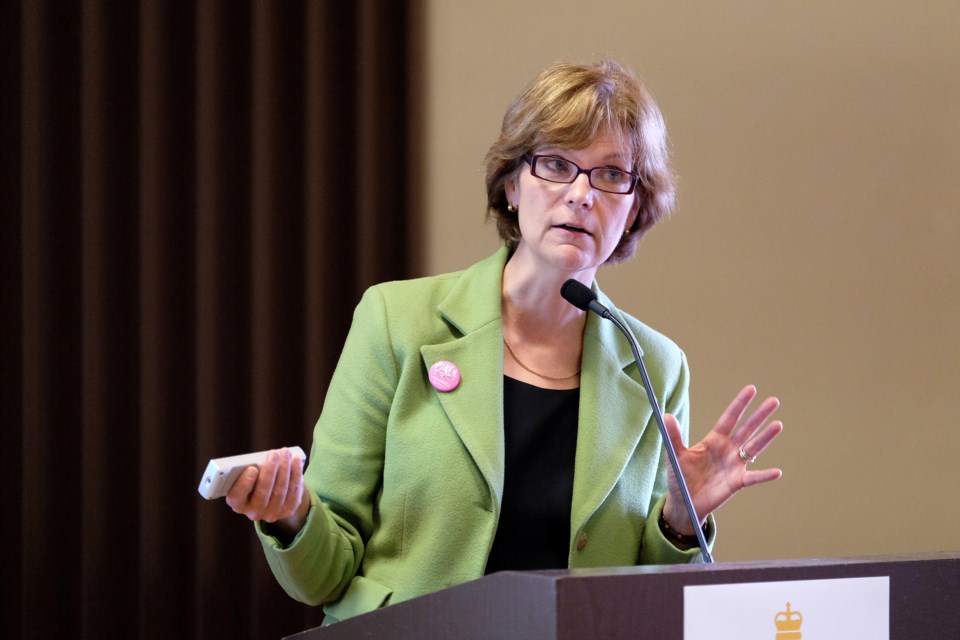British Columbia’s seniors advocate is recommending the creation of a new program to help with seniors’ transportation.
Seniors Advocate Isobel Mackenzie recently released a report, Seniors Transportation: Affordable, Appropriate and Available, which concludes that changes are needed to address some of the existing transportation systems and suggests creating a new program to fill in some of the gaps.
“At the age of 65, approximately 90 per cent of B.C. seniors have a driver’s licence, but this drops to approximately 44 per cent by the age of 85,” said a statement from the seniors advocate. “It is challenging when we begin retirement with driving ourselves to activities and appointments but find, many years later, that we are still living independently and engage with our community, but we are not able to get ourselves out and about by car any longer.”
While existing public transportation services such as transit, HandyDART and Taxi Saver vouches, can support some seniors some of the time, the advocate states that none of them can fill all transportation need for all seniors.
“Not all seniors have family and friends who can get them out and about,” Mackenzie said.
One of the report’s findings is that many seniors may have the physical ability to take a bus or to use HandyDART, but may have cognitive challenges that require someone to accompany them. In other cases, physically frail seniors may require someone to assist them throughout their trip.
The report states that none of the current programs provide for these needs, so even with recommended improvements to existing services, those needs won’t be addressed. To fill the gap, Mackenzie is recommending the creation of a new Community Drives program that would be administered under the existing home-support program.
According to Mackenzie, the provincial home support program assesses the physical and cognitive function of seniors, determines what their needs are, determines how much they can contribute to the cost of needed services and hires, schedules and supervises thousands of staff working every day to assist seniors in maintaining their independence.
“Along with helping seniors get bathed, dressed and ensuring they take their medications, the program could easily schedule someone to pick up the senior and take them to a medical appointment,” said a news release from the Office of the Seniors’ Advocate. “Using the existing infrastructure of home support will allow the program to get up and running quickly and will reduce duplication.”
British Columbia’s seniors advocate has made a number of recommendations in her recently released report: Seniors Transportation – affordable, appropriate and available. The report’s 15 recommendations include:
*The province should coordinate with ICBC to get information about transportation alternatives and other community supports into the hands of those seniors who are not renewing their driver’s licence.
* The province should work with local governments to explore ways of achieving more pedestrian-friendly communities through the use of grants, tax incentives, rebates and other tools that local government may have or be given. As part of this, the advocate recommended infrastructure that supports mobility-challenged pedestrians moving about in the commercial hubs should be required.
* Support people who volunteer to drive their family members, friends or neighbours to medical appointments, through a tax relief program for someone acting as the primary driver for a senior who is no longer has a current driver’s licence and qualifies for HandyDART and/or the Federal Disability Tax Credit.
* The province should work with B.C. Transit and TransLink to establish a standardized, provincewide “Seniors Bus Buddies” program that will connect seniors with local volunteers or staff that will work with the senior to initiate them into the use of public transit. This may require riding the bus with the senior for the first few times and ensuring they have numbers available to call if there are problems.
* The province should work with B.C. Transit and TransLink to increase the number of benches at bus stops.
* Create an annual seniors bus pass where the fee charged will be based on income. The pass should be considered eligible payment on HandyDART if the passenger has a HandyCard or handyPASS.
* Develop a provincewide mandated training program for transit drivers focused on supporting senior transit users.
* Continued efforts need to be made for increasing the availability of HandyDART services.
* Review fees charged to clients who use HandyDART and consider a more progressive approach that recognizes income and frequency-of-use to ensure cost isn’t a barrier for low-income seniors who need to use HandyDART.
* The government should work with health authorities and unions to establish a community drives program that will be administered through the home support program in all areas of British Columbia. The principles of access and equity that are enshrined in the home and community care program should be applied.



